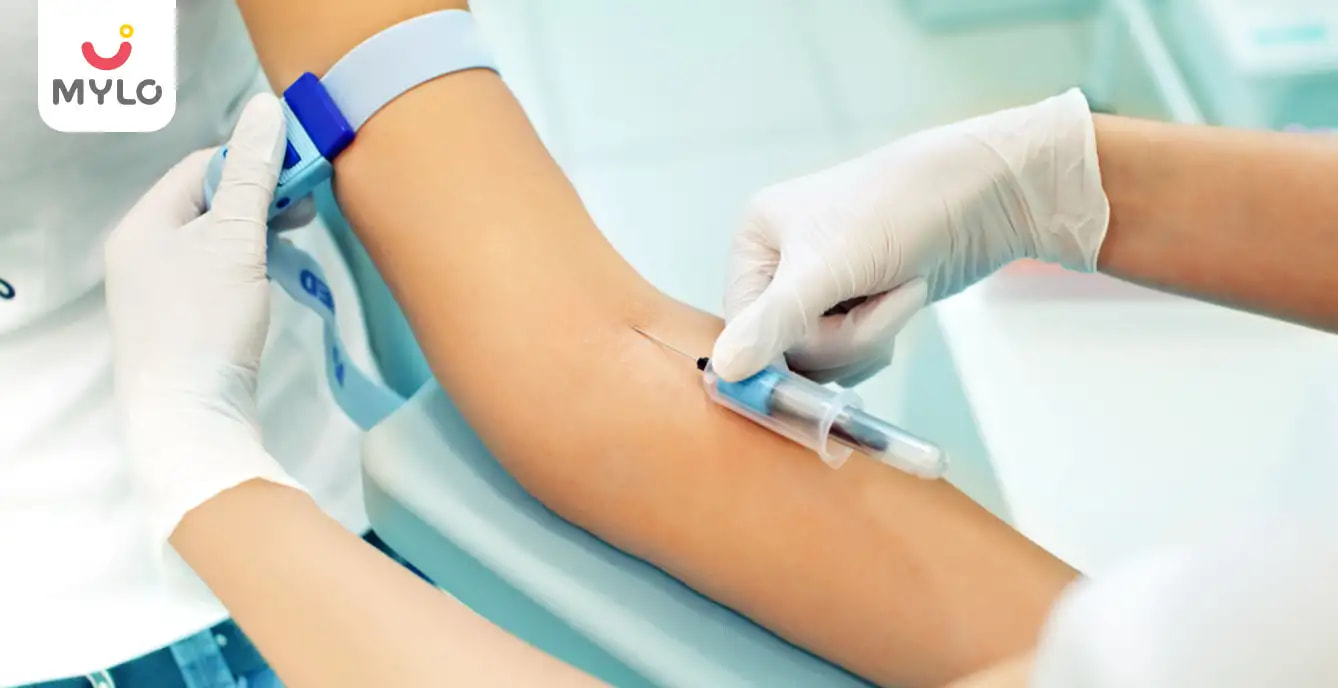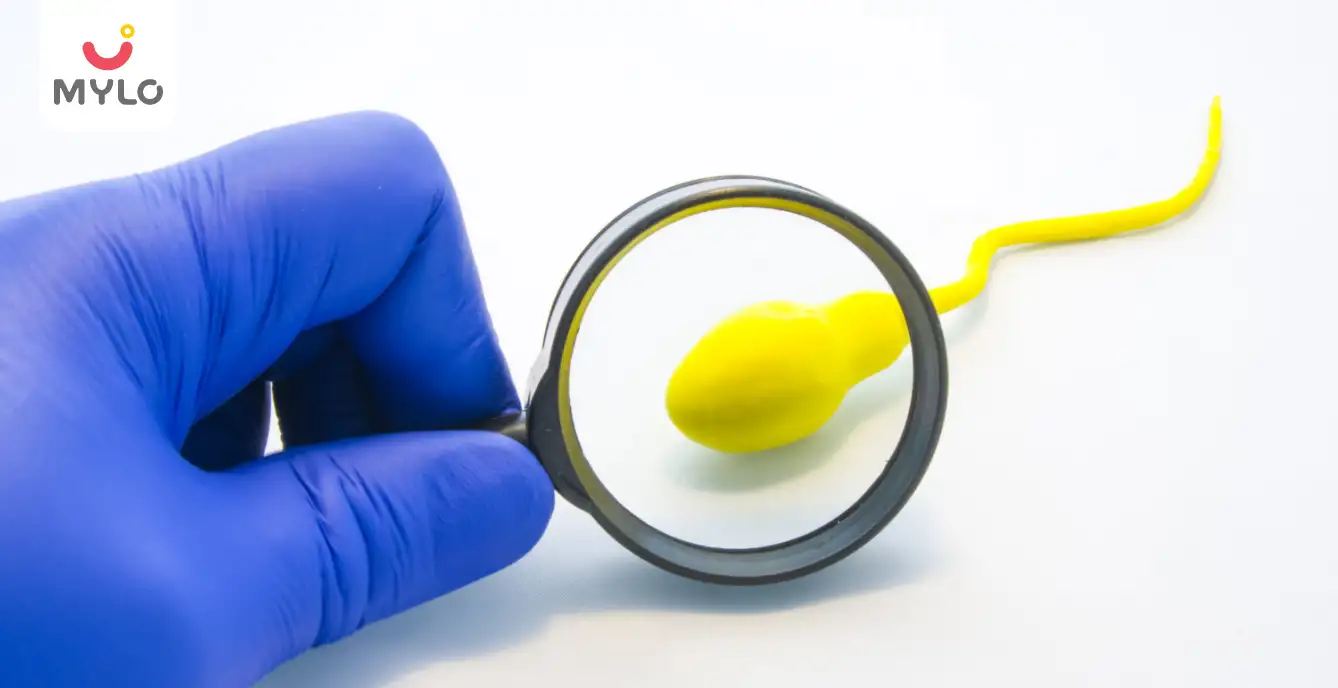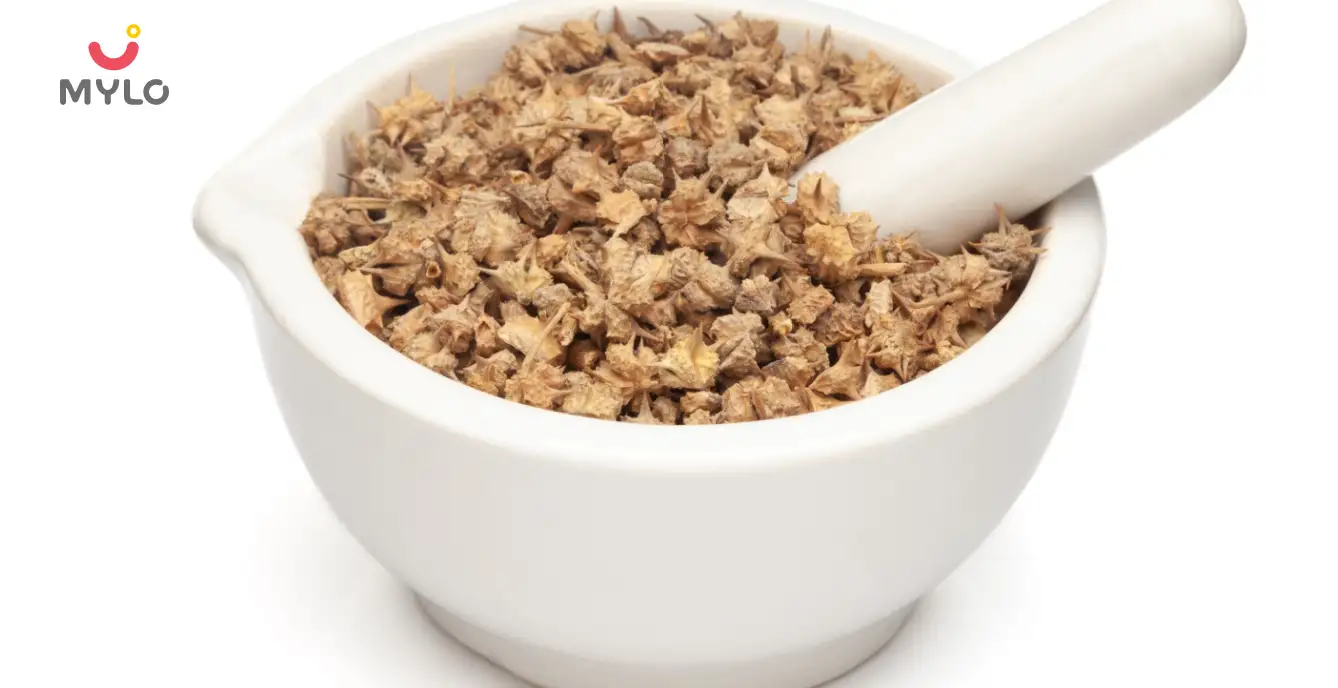Home

Scans & Tests

FSH LH Prolactin Test: What This Group of Tests Can Tell You About Your Fertility
In this Article

Scans & Tests
FSH LH Prolactin Test: What This Group of Tests Can Tell You About Your Fertility
Updated on 3 July 2023



Medically Reviewed by
Dr. Shruti Tanwar
C-section & gynae problems - MBBS| MS (OBS & Gynae)
View Profile

The road to understanding your fertility can be both exciting and overwhelming. In this era of advanced medical knowledge, we have access to a powerful tool that can disclose the accurate picture of your reproductive health: the FSH LH Prolactin test. They can help determine reasons behind irregular cycles, ovulation concerns, and fertility challenges.
Together in this guide, we will gain a profound understanding of what they can tell you about your fertility, what to expect during FSH LH Prolactin TSH test, and what their normal range is. Let's embark on this enlightening journey and take control of your reproductive well-being!
What is FSH LH Prolactin Test?
The FSH, LH, and Prolactin tests are a group of blood tests that provide crucial information about hormonal balance and fertility. FSH (Follicle-Stimulating Hormone), LH (Luteinizing Hormone), and Prolactin are vital hormones that regulate the menstrual cycle and support reproductive health. By measuring the levels of these hormones in the blood, the tests can shed light on various aspects of fertility, such as ovarian function, ovulation, and potential hormonal imbalances.
What Does FSH LH Prolactin Test For?
The FSH, LH, and Prolactin tests are performed to evaluate hormonal balance and assess fertility-related issues. Here's what these tests can tell you:
1. FSH (Follicle-Stimulating Hormone) Test
FSH helps stimulate the growth and development of ovarian follicles in women and sperm production in men. Abnormal FSH levels can indicate problems with ovarian function, such as diminished ovarian reserve or polycystic ovary syndrome (PCOS), as well as issues with sperm production in men.
Yoy may like : Understanding Follicular Study A Comprehensive Guide to Female Fertility
2. LH (Luteinizing Hormone) Test
LH is crucial in triggering ovulation in women and stimulating testosterone production in men. FSH LH test levels can provide insights into the timing and quality of ovulation. It can help diagnose irregular menstrual cycles, anovulation (lack of ovulation), or certain hormonal disorders.
3. Prolactin Test
Prolactin is responsible for breast development and milk production in women. Elevated prolactin levels may indicate hyperprolactinemia, which can disrupt ovulation and cause irregular periods or infertility.
You may like: Galactorrhea: Meaning, Symptoms & Causes
What is the Procedure for FSH LH Prolactin TSH Test?
The procedure for FSH, LH, Prolactin, and TSH (Thyroid-Stimulating Hormone) tests typically involves the following steps:
1. Blood sample collection
These tests are performed using a blood sample. A trained healthcare professional will then insert a thin needle into the vein to draw a small amount of blood into a collection tube.
2. Laboratory analysis
The collected blood samples are sent to a laboratory for analysis. There, technicians will examine the samples to measure FSH, LH, Prolactin, and TSH hormone levels.
3. Results and interpretation
Once the laboratory analysis is complete, your healthcare provider will review the results. They will assess the hormone levels concerning the reference ranges and interpret the findings based on your specific circumstances and symptoms.
4. Discussion and treatment plan
Your healthcare provider will discuss the test results with you, explaining their implications for your fertility and overall health. They may recommend further tests or procedures to identify the underlying cause of any abnormal hormone levels. Based on the results and your specific needs, they will develop an appropriate treatment plan, which may involve medication, lifestyle changes, or fertility treatments.
How to Prepare for FSH LH Prolactin Test?
To prepare for an FSH, LH, Prolactin, and TSH (Thyroid-Stimulating Hormone) test, follow these general guidelines:
1. Consultation with your healthcare provider
Schedule an appointment with your healthcare provider to discuss the test and its purpose.
2. Follow any fasting requirements
In some cases, fasting may be required before the test; ask your doctor or lab technician well in advance about fasting requirements.
3. Medication and supplement information
Inform your healthcare provider about any medications or supplements you are taking, as they may affect the test results.
4. Timing considerations
FSH LH test may need to be performed on specific days of your menstrual cycle for particular hormones, such as FSH and LH. Your healthcare provider will inform you about the appropriate timing for the test based on your menstrual history or specific fertility concerns.
What is the Normal Range of These Tests?
Let us now understand what the normal ranges of these tests should be:
1. FSH Test Normal Range
The normal range for FSH (Follicle-Stimulating Hormone) levels can vary slightly depending on age and gender. During the reproductive years, the normal FSH range for adult females is typically between 4 and 10 international units per litre (IU/L) during the early follicular phase of the menstrual cycle. FSH levels rise above 10 IU/L during perimenopause and menopause. Normal FSH levels for adult males typically range between 1 and 12 IU/L.
2. LH Test Normal Range
LH levels for females during the early follicular phase of the menstrual cycle (before ovulation) are typically low, ranging between 1 and 10 international units per litre (IU/L). As the process progresses, LH levels surge, reaching a 25 to 40 IU/L peak just before ovulation. After ovulation, LH levels decrease. Normal LH levels for adult males typically range between 1 and 9 IU/L.
3. TSH Test Normal Range
The normal range for TSH in adults is typically between 0.4 and 4.0 milli-international units per litre (mIU/L). This range may vary slightly between different laboratories. During pregnancy: TSH levels tend to be lower during the first trimester, with a standard range of around 0.1 to 2.5 mIU/L. TSH levels may increase slightly in the second and third trimesters but usually remain within the normal range.
4. Prolactin Test Normal Range
The normal range for Prolactin in non-pregnant women is typically between 2 and 29 nanograms per milliliter (ng/mL). The normal range for Prolactin in men is generally lower, ranging from 2 to 18 ng/mL. During pregnancy, prolactin levels increase. The normal range for Prolactin in pregnant women can vary significantly, but it is generally higher than in non-pregnant women.
It's important to note that these are general reference ranges, and individual factors such as age, underlying health conditions, and medication use can affect prolactin levels. Additionally, laboratories may have slight variations in their reference ranges, so it's best to consult with a healthcare provider who can accurately interpret your specific prolactin test results.
What Happens After FSH LH Prolactin TSH Test?
After the FSH LH Prolactin test, the following steps will depend on the results obtained and the reason for conducting the tests. Here are a few possible scenarios:
1. Normal results
If all the hormone levels fall within the normal range, it generally indicates that your hormone levels are balanced, and no further intervention may be necessary. Your healthcare provider may advise routine follow-up or suggest monitoring hormone levels periodically.
2. Abnormal results
If hormone levels are outside the normal range, further investigation may be required to determine the underlying cause. To identify potential issues, your healthcare provider may recommend additional tests, such as imaging studies or other hormonal assessments.
3. Treatment plan
Your healthcare provider will develop an individualized treatment plan based on the specific hormonal imbalances identified. This may involve lifestyle modifications, medications, hormonal therapy, or other interventions to restore hormonal balance or address any underlying conditions.
4. Fertility evaluation
FSH LH test levels are significant for assessing fertility. Abnormal levels of these hormones may indicate issues with ovulation or hormonal imbalances that can affect fertility.
5. Ongoing monitoring
For individuals with known hormonal imbalances or conditions, regular monitoring of hormone levels may be necessary to track progress and adjust treatment plans as needed.
Discussing your test results with a healthcare provider who can provide a comprehensive assessment, interpret the findings, and guide you on the appropriate next steps based on your circumstances and goals is crucial.
You may like : How to Treat Hormonal Imbalance to Get Pregnant: Everything You Need to Know
Key Takeaways
The FSH LH Prolactin test is a group of tests that provide valuable insights into hormone levels and their impact on fertility and overall health. Abnormal results may indicate hormonal imbalances or underlying health conditions that require further investigation and treatment. It is crucial to consult with a healthcare provider to interpret test results, discuss concerns, and receive personalized guidance.
References
1. Fatemeh Lavaee, Nazila Bazrafkan, Fateme Zarei, & Maryam Shahrokhi Sardo. (2021). Follicular-Stimulating Hormone, Luteinizing Hormone, and Prolactin Serum Level in Patients with Oral Lichen Planus in Comparison to Healthy Population.
2. Skowronski, Mlotkowska, Tanski, Lepiarczyk, Kempisty, Jaskiewicz, Pareek, & Skowronska. (2019). Pituitary Hormones (FSH, LH, PRL, and GH) Differentially Regulate AQP5 Expression in Porcine Ovarian Follicular Cells. International Journal of Molecular Sciences.





Medically Reviewed by
Dr. Shruti Tanwar
C-section & gynae problems - MBBS| MS (OBS & Gynae)
View Profile


Written by
Madhavi Gupta
Dr. Madhavi Gupta is an accomplished Ayurvedic doctor specializing in Medical content writing with an experience of over 10 years.
Read MoreGet baby's diet chart, and growth tips

Related Articles
Related Questions
Influenza and boostrix injection kisiko laga hai kya 8 month pregnancy me and q lagta hai ye plz reply me

Hai.... My last period was in feb 24. I tested in 40 th day morning 3:30 .. That is faint line .. I conculed mylo thz app also.... And I asked tha dr wait for 3 to 5 days ... Im also waiting ... Then I test today 4:15 test is sooooo faint ... And I feel in ma body no pregnancy symptoms. What can I do .

Baby kicks KB Marta hai Plz tell mi

PCOD kya hota hai

How to detect pcos

Related Topics
RECENTLY PUBLISHED ARTICLES
our most recent articles

Medications
Why Berbitol is the Missing Piece in Your Supplement Stack

Leisure
Top 10 Action Movies to Watch on Netflix in 2023

In Vitro Fertilization (IVF)
Foods to Avoid After Embryo Transfer & Other Precautions to Boost Your Chances

Reproductive health
Semen Analysis: A Comprehensive Look at Male Reproductive Health

Sex Life
Understanding Premature Ejaculation: Causes, Symptoms, and Treatment Options

Health & Wellness
Gokshura: The Ancient Ayurvedic Remedy for Optimal Sexual Health and Wellness
- Retrograde Ejaculation: Unraveling the Mystery Behind This Uncommon Sexual Dysfunction
- Fertisure F: The Key to Unlocking Your Fertility Potential & Chances of Conception
- Here's everything you need to know if you want to give potty training to your infant or try Elimination Communication.
- Top 4 Kinds of Infertility Treatments to Cure Male Infertility
- Sleeping positions during pregnancy
- Burning Sensation After Sex: What Could It Mean
- Hormonal Imbalance in Men: What You Need to Know About Its Hidden Effects
- Kapikacchu: The Secret Ingredient for Boosting Fertility and Libido
- Safed Musli: The Secret Ingredient to Boost Your Immune System and Lifestyle
- What Causes Blurred Vision During Pregnancy & How to Deal With It?
- Suffering from Insomnia during your Pregnancy: Here are the Symptoms and Solutions
- Original Shilajit: The Key to Unlocking Your Health and Wellness Goals
- Pregnancy Induced Hypertension : Symptoms, Causes & Treatment
- 10 Amazon Prime Series to Look Forward to in 2023


AWARDS AND RECOGNITION

Mylo wins Forbes D2C Disruptor award

Mylo wins The Economic Times Promising Brands 2022
AS SEEN IN
















- Mylo Care: Effective and science-backed personal care and wellness solutions for a joyful you.
- Mylo Baby: Science-backed, gentle and effective personal care & hygiene range for your little one.
- Mylo Community: Trusted and empathetic community of 10mn+ parents and experts.
Product Categories
baby carrier | baby soap | baby wipes | stretch marks cream | baby cream | baby shampoo | baby massage oil | baby hair oil | stretch marks oil | baby body wash | baby powder | baby lotion | diaper rash cream | newborn diapers | teether | baby kajal | baby diapers | cloth diapers |




